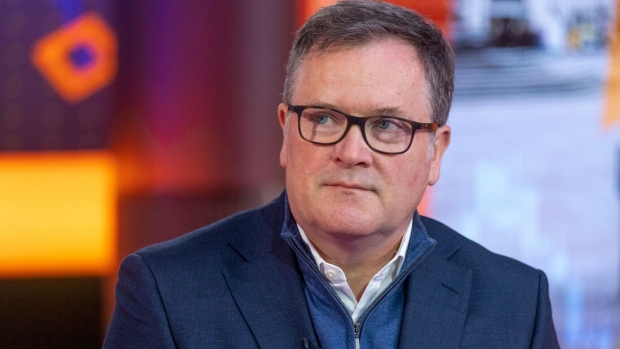Apr 10, 2024
Vitol’s Millionaire Traders Aren’t Motivated by Money, CEO Says
, Bloomberg News

(Bloomberg) -- The next chief executive officer of Vitol Group should be someone who enjoys the business of trading commodities and is not just motivated by money, the current boss of the energy giant said in an interview.
Succession is one of the key issues facing the commodity trading world, which is also enjoying its most profitable period ever — leading to questions about whether companies will be able to retain already exceptionally wealthy traders. Vitol and its biggest rivals, most of which are privately owned, have minted a number of new billionaires and $100 millionaires across their top ranks in recent years.
Read: Commodity Traders Rake in Billions in Second Blockbuster Year
Vitol, the world’s largest independent energy trader which is owned by roughly 450 of its employees, has raked in over $28 billion in earnings in the past two years. But CEO Russell Hardy said he wasn’t concerned that the windfalls would lead to an exodus.
“Those worries will always be in the back of our minds, but in the end the guys that are motivated to carry on running and building things, they’re not doing it for financial gain,” he said on the sidelines of the Financial Times Commodities Summit in Lausanne. “The guys that want to run the business should and will stay with the company because they enjoy what they do.”
Hardy, 58, took over from longtime Vitol leader Ian Taylor six years ago. He said he has no plans to retire “at this stage,” but that he does have a plan for who would take over from him. “You always have a succession plan, but it’s a bit like Tetris, the blocks are always moving,” he said.
The comments are a rare insight into succession planning at a company that plays a huge role in global energy markets, supplying enough oil every day to meet the needs of Germany, France, Italy and Spain combined. Following a period of bonanza profits triggered by Russia’s invasion of Ukraine, many of the largest commodity traders are wrestling with the issue of who will run and own the companies in the future.
Read: Succession Drama Grips Commodity Trading’s Billionaire Factories
Vitol earlier this year added two new members to its management board, its inner circle of top executives.
Hardy declined to say whether he was now the largest shareholder of Vitol, but confirmed that no individual owns more than 5% of the company — in contrast to rivals like Mercuria Energy Group Ltd. and Gunvor Group Ltd. whose bosses own over 50% of the companies.
“I’ve got to find someone to take over from me. They own 50%, 80% of their own companies,” he said. “They’ve got to figure out whether it’s a family firm or not.”
Vitol has been spending its big cash pile on buying stakes in oil refineries, petrol station networks and breaking into new markets like metals.
Vitol is “reinvesting in growing our physical footprint” and reducing its debt, Hardy said. But the company will be cautious. “It’s not burning a hole in our pocket,” he said, “We’ll be careful about what assets we do invest in because it’s important that we can properly manage them.”
The company is looking at Shell Plc’s refinery in Singapore that is for sale, Hardy confirmed, but said it is “not an enormously high priority.”
Vitol is among a string of the world’s largest commodity traders that have been targeted by US Department of Justice investigations into corruption. The company in 2020 admitted to paying bribes in Mexico, Ecuador and Brazil, and was thrust back into the spotlight this year as details of the wrongdoing were laid out in a Brooklyn courtroom during the case of former Vitol trader Javier Aguilar.
Read: How the Top Oil Trader’s Brazen Corruption Was Caught on Tape
Aguilar was convicted on three counts after a trial that laid bare a culture of corruption in some corners of the commodity trading industry. (Aguilar’s lawyers argued that he was an unwitting participant in a scheme masterminded by others, and have said he will appeal.)
Hardy said that Vitol had “changed a lot” in the four years since the company resolved the DOJ investigation.
The executive, who joined Vitol in 1993, said he had had no knowledge of the wrongdoing while it was going on. “I was trading at the time, running derivatives or running gas or running, you know, something else not related to South America. So I’ve been a relative distance away,” he said.
©2024 Bloomberg L.P.






